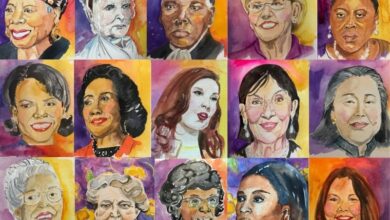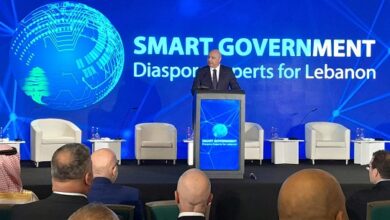
On 25 January, and since 2022, an International Day of Women in Multilateralism is celebrated through a Resolution of the General Conference (2021) of the United Nations Educational, Scientific and Cultural Organization (UNESCO). Three pillars guide this day: the centrality of human rights (including gender equality), the prevalence of peace and the promotion of sustainable development.
Women have been at the centre of these pillars through their leadership roles, advocating for appropriate policies, investing in the empowerment of women and girls, and pushing for more accountable structures and institutions. Recent history has witnessed several legal and policy achievements towards amplifying the role of women in global governance. The United Nations (UN) Charter (1945) has been influenced by remarkable women leaders who equally played a role in drafting the Universal Declaration of Human Rights (1948). The Convention on the Elimination of All Forms of Discrimination against Women (CEDAW 1979) calls for women’s rights to hold public functions and equal rights for women to represent their countries at the international level. The UN Security Council Resolution 1325 on Women, Peace and Security (2000) highlights the role of women in peace building processes and the persistence of limited recognition of women’s role and expertise as agents of positive change and societal transformations. The UN Secretary-General António Guterres issued an ambitious vision Our Common Agenda (2021), which aims to improve international cooperation through effective multilateralism.
Thanks to these global commitments, we have witnessed an increased representation of women in key senior positions in governments, in diplomatic representations, in multilateral institutions and in UN agencies. Despite the achievements made, institutions and organisations have rarely devoted sufficient time and resources to put these global commitments to work.
On the significance of the day, the achievements and the challenges ahead, I spoke to University Professor Fadia Kiwan, the Director General of the Arab Women Organization who was the Representative of Lebanon to the Executive Board of the Arab Women Organisation (2003- 2017).
Kiwan emphasized that multilateralism offers a global platform for action, driven by values rather than power dynamics.
While multilateralism often reflects power imbalances, such as the quasi global dominance of the United States including in the UN system, she stressed its potential to unite societies and transcend local realities for shared global objectives.
It requires the assistance of all States in maintaining peace and resolving conflicts by diplomatic means and through negotiation, in order to contribute to sustainable development globally.
Regarding women’s role in multilateralism, Kiwan noted that societal traditions and cultures are often used to justify discrimination, limiting women’s progress. She highlighted the importance of increasing women’s presence in decision-making positions, in multilateral platforms and in the United Nations system and supporting policies that foster gender equality globally.
On feminist foreign policies, Kiwan emphasized the need to address the global hegemony of Northern policies and its impact on women in the South, advocating for positive discrimination policies to effectively address the inequalities between women and men. She urged women leaders from the North to challenge these inequalities by influencing global political agendas.
She also reflected on cultural and economic barriers women face, particularly in the Arab world. She noted that societal traditions often hinder women’s empowerment and financial autonomy, with traditional roles and unpaid domestic work remaining significant obstacles. She emphasised the critical role of the care economy as a transformative framework that not only prioritizes and values care work — whether paid or unpaid — but also addresses the systemic imbalance wherein unpaid care work, predominantly performed by women, remains undervalued and overlooked, so that it must be shared by both men and women.
An unfinished agenda
In order to stay true to the Resolution, an increase of women’s representation in key decision-making positions becomes an imperative. In spite of the achievements made, many obstacles face women in multilateralism with regard to participation in decision making, in peace building and in international affairs. Robust plans and actions are required to take earlier achievements forward in order to change the nature of global governance towards an equal representation of women and towards preparing young women to become global leaders. Moving forward, five compelling priorities need to be translated into actions:
1. Global solidarity: via multilateral platforms, it is essential to transcend boundaries, politics, regionality, hegemony and competition through exerting global solidarity. World leaders need to examine the impact of their actions on development processes, on solving conflict and on gender equality in order to advance towards a stronger participation of women in multilateralism.
2. Legal frameworks: No country has yet achieved gender equality. Legislations, laws and policies needs to be developed and enacted, budgets made available and accountability systems put in place. Equality between men and women could therefore transcend cultures, norms and customs and be enshrined in a culture of rights and fundamental freedoms.
3. Start early and invest in education: gender roles develop at an early age. In order to promote gender equality and value women’s equal contribution to society, children from an early age need to develop knowledge and skills to participate fully and effectively in economic, political and social and processes and to assume leadership roles from a young age.
4. Increase the participation of women: every voice counts, and women have proved their commitment to building peace and for using diplomacy in order to prevent conflict. Yet, the representation of women in public and international decision-making positions is lagging behind.
5. Building alliances and networks: Addressing structural and cultural barriers requires actions from local to global levels, in order to amplify women’s voices, to exchange lessons learned, to advocate for the inclusion of their perspectives and experiences into global efforts, and to mentor younger generations to actively participate in leadership roles.
Arabic version: click here
Source: Al Nahar









